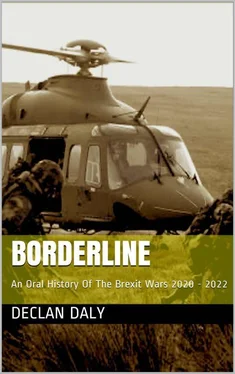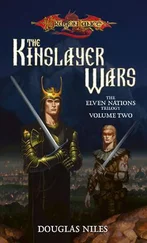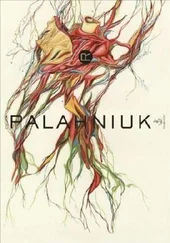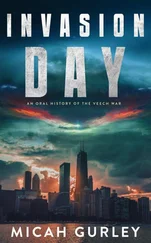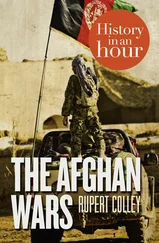Coming back up Starfort 4 the next day was an exercise in even greater misery than usual. Like everyone else, he was happy when the place was burned. Maybe just satisfied at seeing it get what it deserved rather than happy. But Starfort 11 was just down the road, wasn’t it. Combining the remains of the two originally understrength companies that had occupied both forts brought the total people there to one, still understrength, infantry company. And it seemed like it would never end. Patrols, mortars, IEDS, Covid-19 and lads not coming back in.
Sometime between 0315 and 0330 on the night of March 04 2021, Pte Thomas McLanahan cocked his rifle, put the muzzle in his mouth and fired.
Lt Brian Quinlan
‘I remember that night, obviously. I was duty officer – in charge of the general security within the fort as opposed to QRF or anything – the same as being orderly officer in any barracks except smaller but more likely to go wrong. If anyone was going outside, I’d be the one signing out the weapons in the armoury and that kind of thing. I was also responsible for our own camp guard and arranging medevacs, so… two for the price of one that night. I remember afterwards in the investigation people, asking me was there anything off about him or anything noticeable and I nearly laughed at them – everything was off about everyone by that point, anyone who’d been in Starfort 4 especially. But no – to give the actual answer I gave them – there was nothing out of place when I last saw him alive.
I thought we were under attack initially when I heard the shot, but there was just one and, by that point we could kind of tell, you know? The vibe around the place was instantly wrong. My duty room was in a portacabin across the helipad in the centre of the camp, over near the armoury itself and the canteen. When I ran outside, I was the only one moving, no alarm, no shouts, no more shots. Just that quiet you get when you know someone is dead.
I got up to the beat and the guardroom and, well, it was quite a graphic scene. I had to push one of the younger Ptes out of the way – he was new and had never seen anything like it – I could see myself then that… I could see that his helmet had been blown off of his head and was lying upside down near the wall of sandbags. The back of his head was largely gone and he had pure black eight ball eyes. He was gone, I mean that was immediately obvious. I could see that someone had removed the rifle from his mouth, which you’re not meant to do, you know, for the MP investigation and all that, it’s technically a crime scene until proven to be suicide so they need it left alone. But, eh, one of his buddies there that knew him from Mullingar was on guard with him and had been the first one out and he started trying to give him CPR. Cpl Tyrrel was guard commander and he had him still restrained from trying to get at the body again. The strap on his helmet, I mean – it’s funny what you see, what sticks with you afterwards, the strap on his helmet was still closed at the clasp but was broken at the end where it attaches to the helmet itself. That was the force of the shot at that range.
That, I think, was the last straw and whatever morale was left in the place was gone. I’m not going to lie, he was a guy who had his problems, but he was liked well enough by nearly everyone and a solid soldier, never seemed afraid anyway. It really affected the unit badly to be honest, that kind of shit justs radiates out through everyone around it.’
◆◆◆
The Medical Corps of the Defence Forces saw rapid and sustained growth throughout the wars, especially the reserve elements which gave doctors the chance to see things they simply wouldn’t in the general community, without having to give up their permanent jobs. But if trauma docs treating gunshot wounds as weekend warriors became something of a meme in the medical community, the same cannot be said for the mental health side of the house. This group found it much harder to recruit and resource its increasing needs. The Defence Forces own PSS – Personnel Support Services – soon found themselves swamped during the Black Winter. As the battle for finite funds and time increased, invisible services like PSS were not so much forgotten about as not increased to the same scale as the operational units.
While the PSS initially focussed on providing resilience training for troops going to the border as part of their predeployment training, the amount of ‘critical incidents’ that required a mandatory debrief soon outnumbered those trained to lead that debrief in any kind of reasonable time. As troops began to do back to back tours, or from their point of view, simply staying where they were, critical incidents for each unit began to ‘store up’, leading to them being dealt with all in one day as PSS staff visited each unit.
This meant that they sometimes encountered a certain level of bitterness from soldiers, who were being asked to recount and relive it all in one go and who felt that their own loss was being dealt with as a tickbox exercise, rather than being recognised at the level it might have been in peacetime. Where PSS staff recommended that DF associated social workers follow up in certain cases, the back log meant that the timeline involved ran to close to two years, even in this first phase of the war. The PSS staff for their own part, suffered themselves with exposure to so many horror stories without having the resources to help.
It has become now a recognised reality, that by bearing so much of the initial load of the wars on so few shoulders, the Defence Forces has activated a timebomb that is both detonated and ticking at the same time. It will continue to exist in this state for a long time to come as each soldier gradually comes to terms with what they have seen and done.
◆◆◆
Interlude: QRA, the British withdraw, enter the French
The provision of a Quick reaction Alert force for policing Irish airspace, both over land and out over the Atlantic was one that in theory came to a head during the political arguments post Brexit, but in fact had been bubbling away just below public consciousness for some time. In the same way as peacekeeping is not a job for soldiers, but only soldiers can do it, an air policing capability can only be provided if you have fighter jets capable of sustained highspeed and with the range to make it matter. People saw fighter jets and straight away thought ‘why do we need them, we’re neutral?’ The notion of intercepting an aircraft that was not identifying itself over the sea and escorting it so that every airliner in the area could know where it was and avoid it was a bit abstract for many.
Equally, the notion that proclaiming neutrality actually meant increasing your military obligations was a step too far for a country where defence spending was just not on peoples radar at all. Successive governments looked at the issue, looked at the cost and then looked away. In the aftermath of 9/11, a secretive deal was drawn up between the DoD, the IAA and the UK MOD to provide QRA over Ireland via the RAF. Notably absent from the conversation were the Irish Air Corps. The cost borne by the state, rules of engagement over Ireland or in Irish controlled airspace or the issue of whether or not it was constitutional for foreign forces to operate in Ireland without Dail permission were never explored in public. It is likely that they now never will be as the capability was unilateraly withdrawn by the UK during the Winter of 2020, the infamous Black Winter.
At the time, this was intended to put presure on Ireland to modify the EU position on some of the trade deal negotiations which had reached an impasse. It was not succesful ironically because of the low value put on conventional Defence issues by Irish politicians, even then when the war against the IRA was building in intensity on the border and there was an increasing amount of intercepts of Russian TU 95 and TU 142 Bear aircraft on the west coast. In hindsight, while some of these aircraft were providing support for Russian undersea operations around the fibre optic cables that arrived in Europe at the Porcupine Banks, others were undoubtedly recceing the country for the drop zones for the subsequent weapons deliveries that accelerated the war.
Читать дальше
